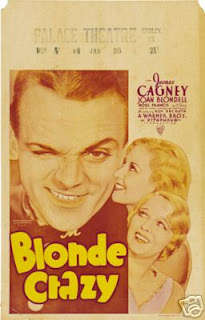Four years ago, things were already going for Trump when we tried to distract ourselves by watching a movie, specifically
this one. But it didn't work. I remember very little about it, and I'm sure if I watched it again I'd get PTSD. THIS time, I avoided ANY election news all election day (yesterday) and as a result could actually enjoy the film. Is it a great film? No. But it's certainly not boring, and it has several good performances (perhaps surprising given that the only recognizable face is Robert Forster, in his last role) and good writing. I'm a sucker for werewolf movies, perhaps because I saw
Children of the Full Moon at a very impressionable age, not to mention the all-time classic
American Werewolf in London fairly shortly thereafter. (If you know me you will have heard me tell the story of how my evil father made me take the compost bucket to the compost heap, at the bottom of the garden, after dark (because I hadn't done it during the day) and when I got there, and was about to spring back to the light of the house, I heard a snuffling sound that seemed deafening. I nearly added my own contribution to the compost heap right then and there, but when I dared to look round, I could see it was in fact a hedgehog. No such thing as a were-hedgehog, at least to my knowledge.) Anyway, it's surprising how few good ones there are (probably the next best is
Dog Soldiers) and this one got good reviews, so... What's that you say? What's the plot? Well: it begins with a couple of city slickers showing up at a rented cabin in the small Utah ski town of Snow Hollow. After getting into a disagreement with some redneck locals, they retire to the hot tub, at which point I asked Jami to guess which one would be the one to die. This is not the foregone conclusion it once might have been, as there's been a trend (since
Halloween) of having a "final girl" (they even
named a film after this trope) who survives the monster. But in this case, he goes inside to shower, prior to
getting it on, but he hears something, and when he comes back out to check on his beloved ("Brianne"), she is in bloody chunks. We then get introduced to our
actual protagonist, John, who is the son, and next-in-line, to the local chief of police (Forster, who is effortlessly good in the sadly little he has to do).
He's also the writer and director of the film, so it's no surprise he set aside the juiciest role for himself. Background: he's a recently-separated father of a teenage daughter, who is also a recovering alcoholic whose mother abandoned him and his father (may have died, I can't remember) when he was a kid, which the daughter later suggests may be responsible for some of his issues. This is a bit of a theme for the writer/director, as one can gather from reading
the synopsis for his other film. Meanwhile, the killer strikes again, this time a female ski instructor, and we actually see the killer, and it is indeed a giant bipedal wolf-man.
This would not please John who is insistent that all suggestions (sparked by giant wolf footprints, copious hair samples and giant bite-marks on the corpses) that it is an animal are mistaken, and the killer is just a man. He gets quite insistent about this (he has a bit of a hair-trigger temper, and is wont to rant loudly about the incompetence of his fellow officers - and often fire them (after punching them first)). Helping him (his father isn't much help, as he has a dicky heart and should've retired), is the long-suffering Detective Julia Robson (whom I swear I recognized, and I have now realized that she's the tall one from
Garfunkel and Oates). Where John is all raging toxic masculinity (although he's not actually sexist - he respects Julia more than any of his male colleagues, he just has a tendency to try to solve things with his fists), she is all no-nonsense, low-key, conflict-minimizing problem-solving. Meanwhile, the wolfman's next victim is a mother and toddler daughter, the mother who had come in to tell the police about a guy who was harrassing her and they didn't listen, which adds to John's self-hatred. As well as panic about his teenage daughter in a town where young women are being torn to shreds. And guess what, she decides to sneak out and meet her boyfriend in his parked car...
What's best about this is that it's got no fat on it. It's well-constructed, well-acted, has some good little horror bits (although none of the kills can approach this one in AWIL) and a nice little denouement. And the right person ends up as the new chief of police. Check it out on Amazon!















































